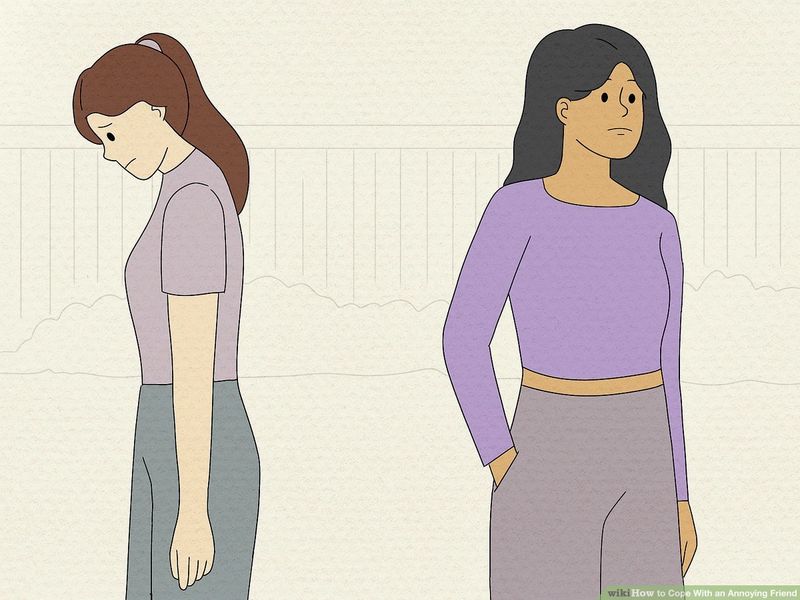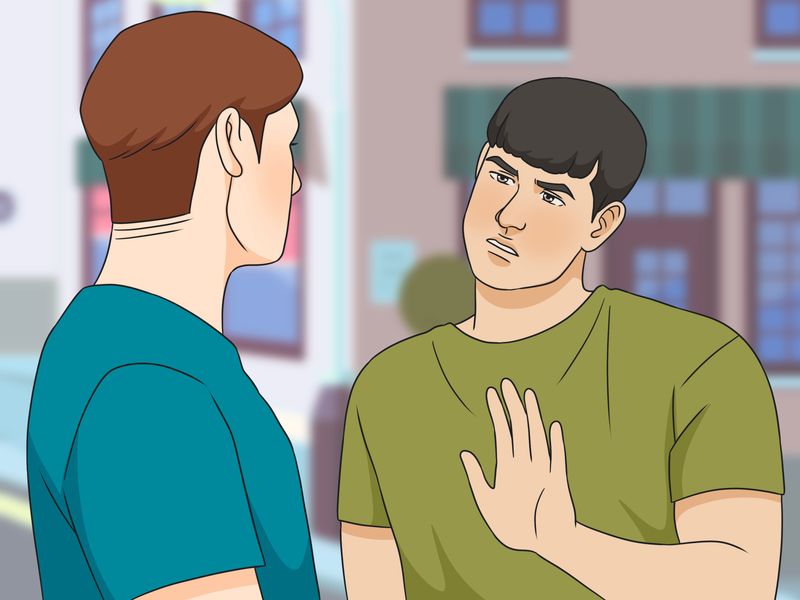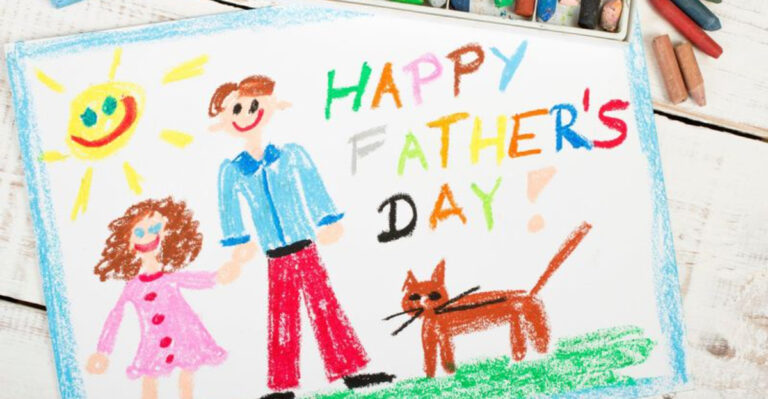19 Tiny Red Flags That Immediately Make You Not Want to Be Friends With Someone
Because life’s too short for one-sided energy, weird vibes, or subtle toxicity. Making new friends as an adult is hard enough — you don’t need to waste time on people who drain you, confuse you, or leave you second-guessing your worth.
Some red flags are loud. Others are sneaky. But they all point to one truth: trust your gut. If you spot enough of these, you’re not “too picky” — you’re just protecting your peace. Pay attention to those tiny signals. Here’s the real talk on what to watch for.
1. The Favors-Only Friend

Ever notice someone who only pops up when they need something? That’s more exhaustion than friendship. Maybe it’s rides, a last-minute babysitter, or endless vent sessions.
When was the last time they checked in to see how you’re actually doing? If you’re always giving without receiving real care in return, it’s a one-way street to burnout. You deserve connections that aren’t all about transactions.
A real friend shows up for the good, the bad, and the totally average days. Don’t settle for someone who treats you like the human equivalent of Uber or free therapy. Your energy is precious—protect it.
2. Keeping Score (Not Cheers)

Ever gotten big news and your friend’s response is a shrug, or worse, a backhanded compliment? That’s not support; that’s rivalry. It’s exhausting when someone can’t just be excited for you.
If you feel like every win turns into a weird silent competition, step back. Friends should be your hype squad, not your scorekeepers.
Life is hard enough without having to tiptoe around someone else’s ego. If your good moments make someone else act distant or sarcastic, that’s not someone who wants to see you shine. Keep your circle full of true cheerleaders, not undercover rivals.
3. Drained, Not Energized

Ever hang out with someone and leave feeling more tired than before? That’s a sign. Real friends lift your mood, not leave you emotionally zapped.
If you’re always drained but can’t quite put your finger on why, trust that feeling. Friendship shouldn’t feel like a job interview or emotional chore.
You don’t owe anyone endless patience, especially if you’re not getting the same energy back. Friends should pour into you, not just take. Trust your gut if you’re constantly left running on empty after time together.
4. Serial Gossiper Mode

Let’s be real: if someone can’t keep other people’s secrets, what makes you think they’ll keep yours? Gossip might seem harmless, but it’s the quickest way to learn how someone handles trust.
If you’re always hearing the latest tea about everyone else, you’re probably on the menu too. Loyalty isn’t optional — it’s the whole point.
A friend who constantly spills others’ business can’t be counted on when it matters. If they’re busy dissecting other people’s lives, don’t be surprised when your own story becomes their next headline. Protect your privacy and your peace.
5. Jokes That Hurt

If you have to fake a laugh at those “just kidding” digs, it’s not harmless fun. Passive-aggressive jokes are code for hidden insults. Nobody likes being the punchline.
Next time you hear a friend make a “joke” that stings, notice how quick they are to say you’re too sensitive. It’s a cheap way to dodge responsibility.
Humor should never feel like a trap. If you sense you’re being tested or put down, speak up — or step away. Friendship is supposed to feel safe, not like standup at your expense.
6. Boundary Busters

Every healthy relationship needs boundaries. If someone can’t take your ‘no’ or tries to guilt you for setting limits, that’s a big warning sign.
It’s not dramatic to want your own space or to protect your time. Friends who respect you won’t push, whine, or make you feel bad for saying what you need.
Your comfort should never be negotiable. Holding the line isn’t selfish; it’s self-respect. Don’t let anyone convince you otherwise — you deserve respect, full stop.
7. Talking Wall, Not a Conversation

Ever felt like you’re just the audience to someone else’s never-ending monologue? That’s not friendship, that’s a podcast you didn’t subscribe to.
Conversations should flow both ways. If you always leave feeling unheard, that’s a solid reason to question the dynamic.
Nobody wants to feel invisible. You deserve friends who ask, listen, and genuinely want to know what’s on your mind—not just wait for their turn to talk. Look for mutual connection, not just airtime.
8. One-Up Olympics

Share a story, and suddenly theirs is bigger, sadder, or just plain more dramatic? It gets old fast. The constant need to one-up can turn every chat into a competition.
Instead of relating, they’re always trying to top whatever you just shared. Vulnerability shouldn’t be a contest.
Real friendship is about connecting, not keeping scorecards of pain or adventure. If you always feel second-best in your own stories, consider whether you’re being heard or just used as a springboard. No medals for the most dramatic life—only exhaustion.
9. Sorry (But Not Sorry)

There’s the classic non-apology: “Sorry you feel that way.” Sound familiar? It’s even worse when nothing changes afterward.
True accountability isn’t just about saying the words. It’s about showing up differently the next time.
If apologies are rare, fake, or never lead to actual change, you’re stuck in a cycle that doesn’t serve you. Don’t let anyone convince you their empty sorries are enough. You deserve better—every single time.
10. The Sensitivity Shamer

Calling someone “too sensitive” is a classic move to avoid responsibility for bad behavior. If you speak up and get told you’re overreacting, that’s not emotional honesty — it’s deflection.
Gaslighting isn’t always dramatic. Sometimes it’s just those small digs that leave you doubting your own feelings.
Real friends care when you’re hurt. If you’re constantly told to “just lighten up,” remember: your feelings are valid. Don’t let anyone talk you out of your own emotions.
11. Jealous Success Watcher

Ever share something you’re proud of and get met with silence? Or worse, an awkward attempt to downplay it? That’s more green-eyed monster than friend.
If they only root for you when you’re not “ahead,” watch out. Your wins should never feel like threats.
Support isn’t conditional. True friends want you to succeed, even if they’re in a different season themselves. Don’t shrink your sparkle to keep someone else comfortable.
12. Weaponizing Vulnerability

When someone turns your private confessions into ammunition during fights, that’s betrayal, not banter. It stings when what you said in trust comes back as a low blow later.
Friendship should be a judgment-free zone. If you’re worried about what might get thrown back at you, it’s not safe.
The best friends protect your soft spots, not use them for leverage. Trust is everything—don’t hand it to people who can’t handle it with care.
13. Chronic Flake Alert

Plans made? Suddenly canceled. Again. If you’re always adjusting your schedule for someone who can’t commit, it starts to feel personal.
Everyone has things come up, but consistent flakiness shows where you land on their priority list. It’s not about one missed brunch; it’s about the pattern.
Accountability is everything in adult friendships. Respect yourself enough to expect effort. You shouldn’t have to wonder if someone will show up for you.
14. Sneaky Shaming

From how you dress to who you date, a friend who shames your choices isn’t offering feedback—they’re undermining you. Judgment is not the same thing as care.
Support means celebrating what makes you different, not quietly trashing it. If you constantly feel picked apart, trust that feeling.
Life is too short to spend time with people who make you shrink. Don’t let subtle shame pass as concern—it’s not.
15. Approval on a Pedestal

If you’re always chasing someone’s approval, that’s not friendship — it’s performance. You shouldn’t have to prove your worth to belong.
Real friends love you on your best days and your worst. If you feel like you’re auditioning for a role in their life, take a step back.
Nobody deserves to feel like a second-string option. Approval should never be the price of admission to someone’s world.
16. Control Enthusiast

Plans, topics, even moods—if it always has to go their way, that’s not partnership. It’s exhausting when someone can’t share the wheel.
Friendship is about give and take, not power plays. If every suggestion you make gets shut down, notice the pattern.
A little flexibility goes a long way. Don’t let someone else’s need for control shape your whole social life. You get a say, too.
17. Waitstaff Test Fails

How someone treats people they don’t “need” tells you everything. If your friend is sweet to you but snaps at waitstaff, that’s a huge indicator of true character.
Kindness shouldn’t be reserved for the important people. Watch for the little things: eye rolls, impatient sighs, or flat-out rudeness.
These moments aren’t small—they’re glimpses into who they really are. If your friend fails the waitstaff test, it’s worth considering how they treat everyone.
18. Copycat Without Credit

Imitation can be sweet, but when your friend copies everything you do—down to your lingo or career moves—and never acknowledges it, something’s off. Admiration is one thing; competition without credit is another.
You deserve friends who cheer you on, not just mimic you for validation. It’s flattering at first, then it gets weird.
If you start to feel like your life is being borrowed without permission, set boundaries. There’s room for both of you to be unique.
19. Pre-Hangout Anxiety

Ever get that little knot in your stomach before plans—then relief when it’s over? Your body knows what your heart can’t say.
Real friendships should feel like a safe space, not an emotional obstacle course. If you’re always bracing yourself, that’s a message you can’t ignore.
You deserve to look forward to time with your people, not dread it. Listen to your own signs—they’re usually right.







